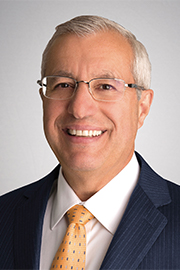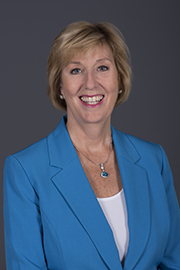- Mar/7/23 10:30:00 a.m.
I thank for Leader of the Opposition for her question. Ontario’s roads are among the safest anywhere in North America, and mandatory reporting for physicians and optometrists has been in place in this province since 1968. The Ministry of Transportation oversees a rigorous process that adheres to national medical standards, and Ontario’s program is closely aligned with that of other provinces.
Multiple statements were provided to the reporter, including an in-depth briefing with subject matter experts from the Ministry of Transportation on the driver medical reporting program. The goal of the program is to protect the public from individuals who have a medical condition that makes it unsafe for them to drive. We are continuing to review all programs within the Ministry of Transportation to make sure that our roads remain the safest in North America.
With respect to the building of the largest public transit infrastructure program anywhere in North America, Metrolinx has been working closely with community groups and with affected stakeholders. Over 100 meetings were held with city of Toronto officials since the beginning of the program, since city council itself voted in favour of our subway program. Over 30 meetings were held with the specific member of the opposition to discuss their concerns about issues that are affecting their community members. We’re going to continue to work closely with the city and with members—
In 2020, our government conducted a study in conjunction with the University of South Wales and Sunnybrook Health Sciences Centre. That study looked at the medical reporting program in Ontario over a 10-year period and found that our program was effective and it saved lives across the province, Mr. Speaker. That is the purpose of the program.
As I have said, we have met, we have provided multiple statements to the reporter in question, including an in-depth briefing that that reporter participated in to pose his questions directly to subject matter experts. We’re going to continue to evaluate the program to make sure that it meets the needs of Ontarians and keeps our roads as safe as they’ve been—among the safest anywhere in North America.
- Hear!
- Rabble!
- Mar/7/23 10:50:00 a.m.
Last week, we were thrilled to welcome Novartis as they opened a brand new office in downtown Toronto. There are now more than 150 Ontario employees working for Novartis, including 50 in that brand new state-of-the-art office in the MaRS building. This investment from Novartis is creating more well-paying, high-skill jobs while strengthening Ontario’s world-class life sciences sector.
This comes on the heels of last week’s announcement from AstraZeneca, who are creating 500 well-paying jobs at their Canadian R&D hub in Mississauga. These back-to-back investments in Ontario are a vote of confidence for our thriving life sciences sector, and it is a strong signal to the rest of the world that Ontario is the best place to invest and grow.
Speaker, we have attracted nearly $3 billion in life sciences investments in just the last 24 months. That put 70,000 skilled employees working in more than 1,900 life sciences firms, because Ontario has the formula for success and everything global companies need to survive and to thrive.
- Hear!
- Rabble!
- Mar/7/23 11:30:00 a.m.
I do have a student here from Toronto Metropolitan University, Ileri Oluwa Promise. Promise is interning as a co-op student in my constituency office in Scarborough–Guildwood. Please welcome her, as she is in the east gallery.
- Hear!
- Rabble!
- Mar/7/23 4:30:00 p.m.
- Re: Bill 71
Thank you to the member from Durham for an excellent presentation in his time. We are all so excited about this bill on this side of the House. It’s Building More Mines Act, 2023, and as my colleague from Sarnia–Lambton said, it’s one of the most exciting pieces of legislation that has come before the House because we’re building Ontario in many ways it hasn’t been built before.
I want to thank the mining sector for the consultations, the opportunities, the feedback in building this bill with us, and the Minister of Mines—who’s a new member, but all his career, he has spent in mining—for the stories he told this morning and for such knowledge and depth, we’re really happy to have him in our caucus, our government.
And the PA to the Minister of Mines, the member from Essex—happy anniversary, by the way—but his love of mining, he said in his speech, how excited he is to be part of this legislation and part of the great things that we are doing for the province of Ontario. And I know that PDAC is in, which is the Prospectors and Developers Association of Canada, which is the largest convention held in the city of Toronto. Not many people know that. I know my northern friends over there are nodding their head. They know. But it’s the world’s premier mineral exploration and mining convention: 30,000 attendees, 130 countries. I think we should all be pretty darn proud of that in the province of Ontario. It shows that we are a mining powerhouse: 40%—I think my friend from Essex said—of the mining financing is done in Toronto. So we’re here, and we need to move ahead for many reasons which everyone has discussed here. But to move ahead for the province of Ontario, economically, environmentally—this is a resource that we need to capitalize on so that we can address climate change and we can be green.
The statistics for the mining industry in Ontario are quite shocking. A lot of people don’t know—I know it has been mentioned: $13 billion annually to Ontario’s GDP, 28,000 direct and 47,000 indirect jobs are associated with mining. It has got the highest proportion of Indigenous workers of all industries in the province at 11% of direct mining jobs in Ontario, and 25% of direct mining jobs in Canada are in Ontario. So two thirds of these direct mining jobs are in northern Ontario, and that’s why my colleague from Durham was really trying to get a fulsome answer about the support that maybe members of the opposition have or should have, definitely, for this bill. But those statistics are impressive.
It was mentioned sometime this morning that Ontario is the leading world producer of gold, nickel and platinum group elements, and Ontario produced approximately $3.1 billion worth of critical minerals, with 10 of the 36 operating mines in Ontario producing critical minerals. I know the members opposite and hopefully many other people who are watching today have heard about our Critical Minerals Strategy. Because we have such high productions of gold, nickel, copper and platinum metals, the world’s largest mining companies operate in Ontario and recognize our great potential.
I know my predecessor Chris Hodgson—I say predecessor as MPP for Haliburton-Kawartha Lakes-Brock, before I had the great honour to represent the constituents there—he went from here to be president of the Ontario Mining Association. So he’s held that for over 20 years. His quote is, “As the world shifts to a greener, more connected and more tech-driven economy, the demand for Ontario’s responsibly mined minerals will continue to grow. This represents a generational opportunity—to create rewarding jobs, build a strong domestic mining-to-manufacturing supply chain, and be a key player in the global energy transition. Given that we are competing with jurisdictions across the world to feed the decarbonization-driven commodity super cycle, the government must take bold action to help Ontario succeed. This includes addressing current challenges in the Mining Act and providing a regulatory pathway forward for our industry leadership in the global marketplace.”
I say to Chris, “Well said,” because if we fail to meet the necessary demand of our weakened supply chain—we’ve seen the world go upside down, as I say—it could cause cascading effects here in Ontario, throughout the country but throughout the world. I don’t think we can ignore that. We have to move. We can’t wait 15 years for a mine to be sited. We all need to work together, and this piece of legislation is a step towards that.
Our labour, human rights, environmental and health and safety standards have dominated markets around the world. Our economic partners want a stable supplier of responsibly sourced critical minerals, and Ontario has the resources to make the best use of its mineral-rich deposits to be a global supplier of minerals like nickel, cobalt and lithium, used in manufacturing batteries for electric vehicles, smart phones and more. Our incredible groundwork for the production of electric batteries, thus producing electric cars—which I believe we have pretty common consensus in the Legislature among all parties that that is our goal of what we want to do. So we’re paving the way for this exciting sector, and we’re going to continue, and must continue, to invest in exploration and innovation through programs like the Critical Minerals Strategy and cut this unnecessary red tape that makes us uncompetitive.
So we are positioned to reinforce our critical minerals supply chain and create the conditions for companies to build mines more efficiently while maintaining our proud environmental standards and upholding the duty to consult. We have the mineral resources and the expertise to supply and manufacture the innovation that we need. We’ve got untapped potential in the mining sector. I’ve heard it for many years, and I’m so glad that we’re a part of the government. The Premier and the many ministers associated with this file have driven this forward so that we can continue to drive the prosperity that is so essential for not only our province but—like I said, the whole world is going to be able to connect with us on this matter.
The commitments made by this government will boost the supply chain. The critical minerals are already integrated into the global supply chain. We have taken many actions and investments by the government. Premier Ford announced the $5.8 million to help junior mining companies to explore for critical minerals in the province. I was kind of surprised to hear—the member from Durham actually said, “You voted against that strategy.” That is so important. I can tell you, I’ve listened to Chris Hodgson for many years on the advice and especially the mining—which he has been part of for many, many years, even when he was on the government’s side before he went to work for the Ontario Mining Association—and been at many of the events that celebrate the junior mining program. They’re essential to get a leg up, to search for what can be done in the future and how we can make it come to fruition faster.
I want to say that when I heard the member from Essex speak today about the perfect domestic supply chain—it’s very important, and I don’t think we understand that enough. We want domestic supply change. We’ve just been through the pandemic. And listening to the processing part—so not only mining but processing here in Ontario. The northern members know the cities that are involved: Timmins, Soo, Sudbury. All these opportunities exist—and new communities, First Nations communities, to come on board and to be trained and to work hopefully at even higher numbers than we spoke about today. For them to invest—because you know when we speak of economic prosperity, we want everyone to succeed. We want northern Ontario to be part of the auto manufacturing sector, and they are for the very first time. We’re giving opportunities to the people in northern Ontario that they’ve never had before.
When we say we’re excited on this side of the House with this legislation, we are, because the Building More Mines Act will create this modern framework in which we can make these developments come faster. We can make people’s lives better. And we are putting out that shingle: Consistently, Ontario is the best place to do business in the world. I am so happy that we’re speaking about this legislation, as PDAC has been going on since Sunday and all the many people that are there, and that we can showcase we’re open for business in many, many ways.
Madam Speaker, I know that other members of the Legislature want to speak to this piece of legislation. I think we should all be positive. We should all be in support. We’re going to go to committee. We’re going to hear concerns that maybe the opposition has. As we do, we will listen, but we have an opportunity that is just so exciting for the province of Ontario with this piece of legislation. I was pleased to be able to speak to it and to support it.
- Hear!
- Rabble!





